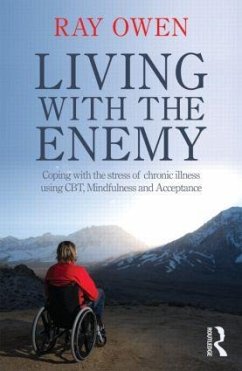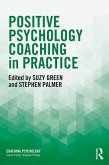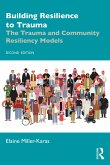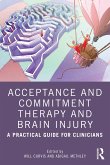'This isn't living, this is just existing.'
A long-term physical health condition - a chronic illness, or even a disability - can take over your existence. Battling against the effects of the condition can take so much of your time and energy that it feels like the rest of your life is 'on hold'.
The physical symptoms of different conditions will vary, as will the way you manage them. But the kinds of psychological stress the situation brings are common to lots of long-term health problems: worry about the future, sadness about what has been lost, frustration at changes, guilt about being a burden, friction with friends and family. You can lose your sense of purpose and wonder 'What's the point?' Trapped in a war against your own illness, every day is just about the battle, and it can seem impossible to find achievement and fulfilment in life if the condition cannot be cured.
It doesn't have to be like that.
Using the latest developments in cognitive behavioural therapy (CBT) which emphasise mindfulness and acceptance, and including links to downloadable audio exercises and worksheets, this book will show you how you can live better despite your long-term condition. It will teach you to spot the ways of coping that haven't been working for you, how to make sure that troubling thoughts and unwanted feelings don't run your life, how to make sense of the changes in your circumstances, to make the most of today and work towards a future that includes more of the things that matter to you.
If you stop fighting a losing battle, and instead learn how to live well with the enemy, then - even with your long-term condition - you'll find yourself not simply existing, but really living again.
A long-term physical health condition - a chronic illness, or even a disability - can take over your existence. Battling against the effects of the condition can take so much of your time and energy that it feels like the rest of your life is 'on hold'.
The physical symptoms of different conditions will vary, as will the way you manage them. But the kinds of psychological stress the situation brings are common to lots of long-term health problems: worry about the future, sadness about what has been lost, frustration at changes, guilt about being a burden, friction with friends and family. You can lose your sense of purpose and wonder 'What's the point?' Trapped in a war against your own illness, every day is just about the battle, and it can seem impossible to find achievement and fulfilment in life if the condition cannot be cured.
It doesn't have to be like that.
Using the latest developments in cognitive behavioural therapy (CBT) which emphasise mindfulness and acceptance, and including links to downloadable audio exercises and worksheets, this book will show you how you can live better despite your long-term condition. It will teach you to spot the ways of coping that haven't been working for you, how to make sure that troubling thoughts and unwanted feelings don't run your life, how to make sense of the changes in your circumstances, to make the most of today and work towards a future that includes more of the things that matter to you.
If you stop fighting a losing battle, and instead learn how to live well with the enemy, then - even with your long-term condition - you'll find yourself not simply existing, but really living again.
"A deeply compassionate, extremely practical and much-needed guide to creating a rich, full and meaningful life while living with chronic illness. This book skilfully plots a mindfulness-based, Values-guided path to reducing your suffering and increasing your vitality, regardless of the nature of your illness."
Dr Russ Harris, author of The Happiness Trap
"The author, clinical psychologist Ray Owen, writes in an accessible, easy to read style. He avoids jargon, explaining things in a lay person's terms. He introduces us to four people, all with long term conditions (LTCs), and he uses these folk to explain the problems LTCs bring and how the techniques in the book can help. We can see elements of ourselves in these people. Owen does not belittle the problems that a LTC can bring for both patient and their loved ones - the limitations, frustrations, loss, physical and emotional suffering and his approach is not a 'quick fix'."
Cathy Stark, Cardiomyopathy
Dr Russ Harris, author of The Happiness Trap
"The author, clinical psychologist Ray Owen, writes in an accessible, easy to read style. He avoids jargon, explaining things in a lay person's terms. He introduces us to four people, all with long term conditions (LTCs), and he uses these folk to explain the problems LTCs bring and how the techniques in the book can help. We can see elements of ourselves in these people. Owen does not belittle the problems that a LTC can bring for both patient and their loved ones - the limitations, frustrations, loss, physical and emotional suffering and his approach is not a 'quick fix'."
Cathy Stark, Cardiomyopathy








